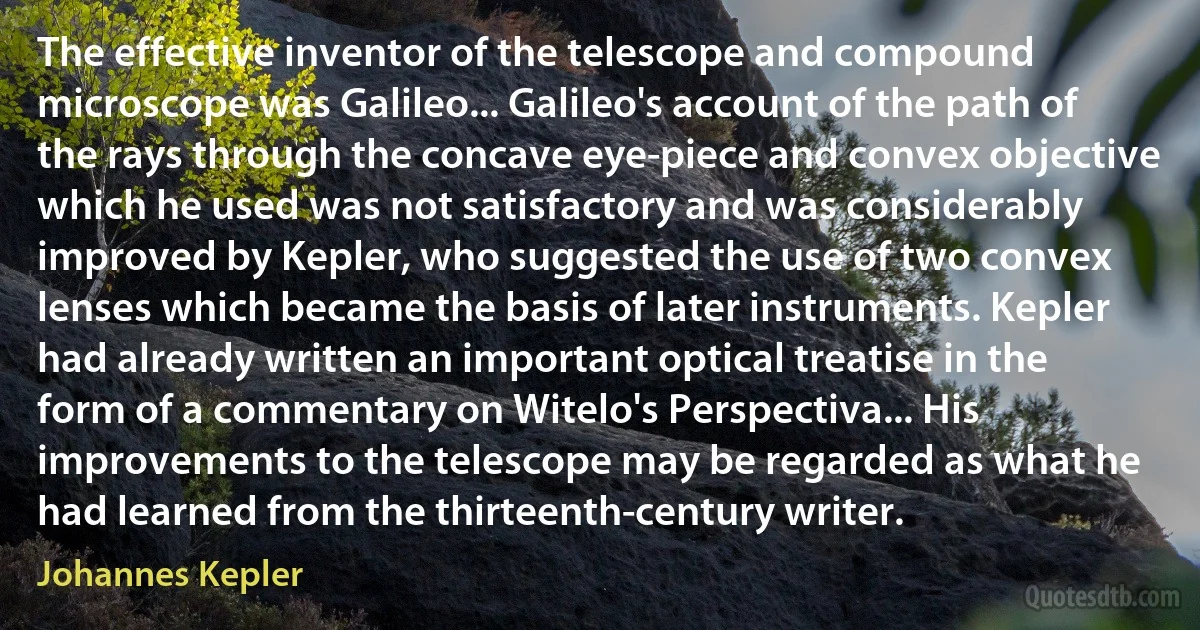Galileo Quotes - page 4
Galileo argued that nature, God's second book, is written in mathematical letters... Kepler is even more explicit in his work on world harmony; he says: God created the world in accordance with his ideas of creation. These ideas are the pure archetypal forms which Plato termed Ideas, and they can be understood by man as mathematical constructs. They can be understood by Man, because Man was created in the spiritual image of God. Physics is reflection on the divine Ideas of Creation, therefore physics is divine service.

Johannes Kepler
In mechanics Descartes can hardly be said to have advanced beyond Galileo. ...His statement of the first and second laws of motion was an improvement in form, but his third law is false in substance. The motions of bodies in their direct impact was imperfectly understood by Galileo, erroneously given by Descartes, and first correctly stated by Wren, Wallis, and Huygens.

René Descartes
It is not known so generally that Kepler was... a geometrician and algebraist of considerable power, and that he, Desargues, and perhaps Galileo, may be considered as forming a connecting link between the mathematicians of the renaissance and those of modern times. Kepler's work in geometry consists rather in certain general principles enunciated, and illustrated by a few cases, than in any systematic exposition of the subject. In a short chapter on conics inserted in his Paralipomena, published in 1604, he lays down what has been called the principle of continuity, and gives as an example the statement that a parabola is at once the limiting case of an ellipse and of a hyperbola; he illustrates the same doctrine by reference to the foci of conics (the word focus was introduced by him); and he also explains that parallel lines should be regarded as meeting at infinity. He introduced the use of the eccentric angle in discussing properties of the ellipse.

Johannes Kepler
After Bruno's death, during the first half of the seventeenth century, Descartes seemed about to take the leadership of human thought... in promoting an evolution doctrine as regards the mechanical formation of the solar system... but his constant dread of persecution, both from Catholics and Protestants, led him steadily to veil his thoughts and even to suppress them. The execution of Bruno had occurred in his childhood, and in the midst of his career he had watched the Galileo struggle in all its stages. He had seen his own works condemned by university after university under the direction of theologians and placed upon the Roman Index. ...Since Roger Bacon, perhaps, no great thinker had been so completely abased and thwarted by theological oppression.

René Descartes

